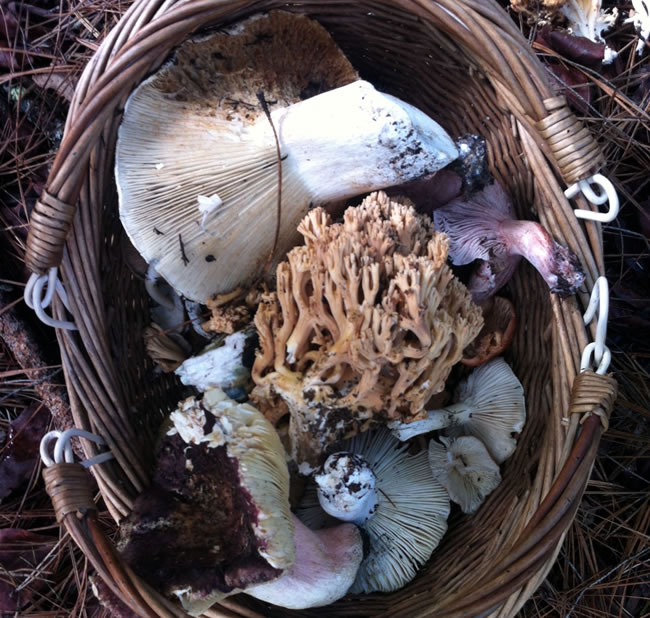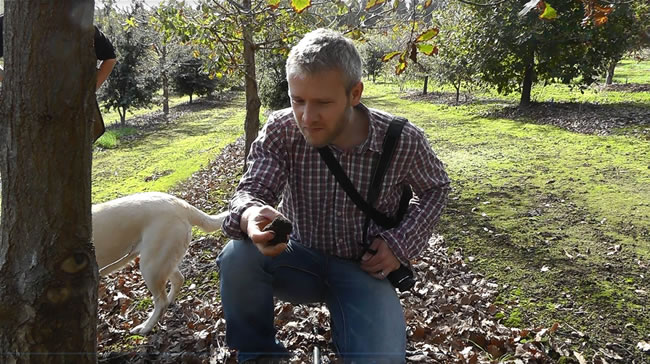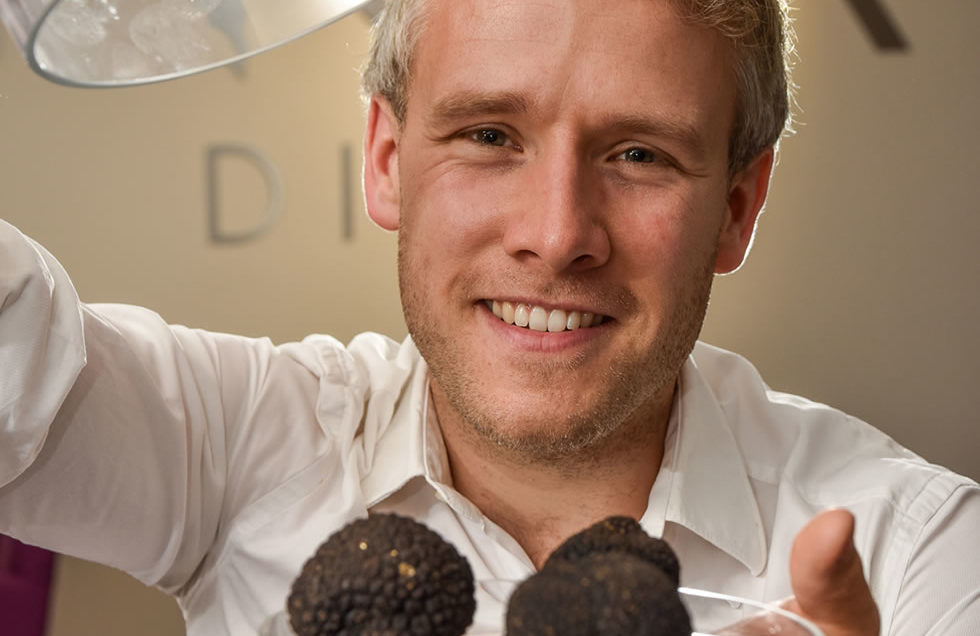Dr Paul Thomas is passionate about truffles. His company Mycorrhizal Systems has been researching, developing and growing these delicate tubers worldwide in partnership with farmers and landowners for over ten years. Earlier this year he harvested the first cultivated truffle on British soil – a historic moment which was six years in the making.
We caught up with Paul to find out more about this industry and about his love for what French gourmand Jean Anthelme Brillat-Savarin called “the diamond of the kitchen”.
He tells us that Britain once had a thriving industry harvesting wild truffles, but modern life and its bulldozers resulted in the indigenous truffle producing woodland being lost. The last known wild truffle hunter hung up his boots in the 1930s and over the last few decades experts have been attempting to grow truffles in the UK without success.

Paul’s debut cultivated truffle (which was of the variety known as the “Summer” or “Burgundy”) was created by introducing fungus to the tree root in a sterile environment and nurturing this for twelve months before planting the tree out in Mycorrhizal’s Leicestershire plantation. Patience, over half a decade of close monitoring and dedication resulted in producing what was not only a boon for science but potentially the herald of a new truffle trade for Britain.
The truffle itself weighed 39g and is worth £400/kg. Paul describes the moment of discovery: “I arrived on site and chose a random tree to take root samples from. I do this on all our UK farms every year, to monitor health and development of orchards. I knelt down and pulled the grass aside so that I could dig for root samples, when I saw what looked like the top of a truffle just breaking the soil surface. I jumped back and dropped my tools, it was like I had seen a ghost. I knew instantly what it was.”
For fellow connoisseurs, Paul has some global restaurant recommendations. “Ken Frank, head chef of La Toque (Napa Valley, USA), knows truffles intimately,” he enthuses. “We run our festival (Napa Truffle Festival) from his restaurant and hotel every January and we specially targeted him because of his reputation and knowledge. It’s a superb place to eat. During the festival we run here, were we bring in chefs from all over the world, I’ve had some of the absolute best dishes.”

Or for something more playful, Paul suggests La Trufa Negra (Spain). “Here I had one of the most memorable dishes. The chef had created sweet synthetic truffles (looking just like the real thing) and we had to excavate them from an edible soil,” he explains.
“I have yet to eat at El Celler De Can Roca, Roca brothers (Girona, Spain) but am desperate to do so,” he continues. “I’ve been lucky enough to have had Joan Roca explain to me in detail his favourite truffle recipes. The innovation and dedication blew my mind.”
And as for preparing his beloved delicacies at home, Paul’s suggestion is to keep things simple. “My favourite way with truffles is to grate them and mix into very good butter (then leave to set in the fridge- this can also be frozen). The butter holds the flavour beautifully and you can then simply cook-up some very good pasta and when cooked, drain and add a big piece of truffle butter. Season well and serve. Absolutely delicious. The relatively neutral flavour of the pasta and the fats in the butter just deliver the truffle to you.”
Dr Paul Thomas can be contacted via MycorrhizalSystems.com






















